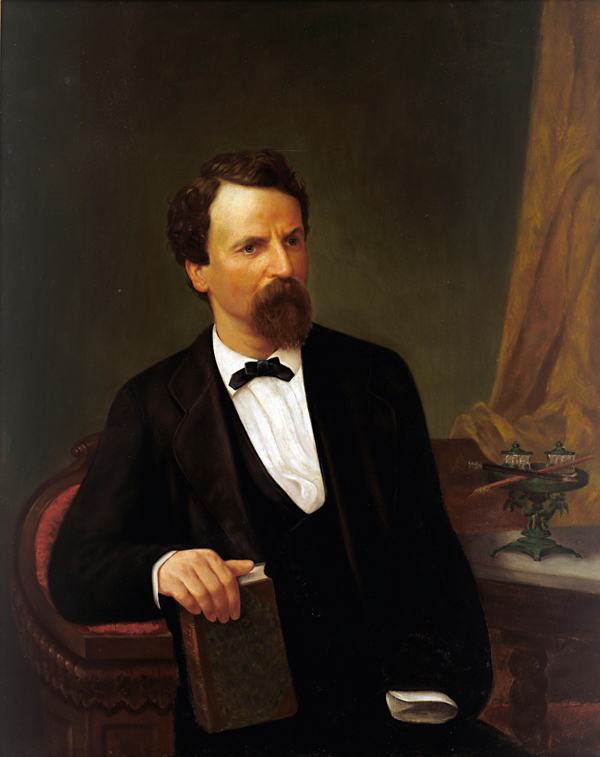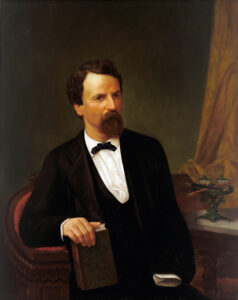Francis T. Nicholls
Francis Nicholls served two nonconsecutive terms as governor of Louisiana from 1877 to 1880, and again from 1888 to 1892.

Courtesy of Louisiana State Museum
Gov. Francis T. Nicholls (Oil Portrait). Unidentified
Francis Redding Tillou Nicholls served two nonconsecutive terms as governor of Louisiana—from 1877 to 1880 and from 1888 to 1892. A Civil War veteran and double amputee, Nicholls enjoyed considerable popularity, which led him to run for election in 1876, at the same time as the presidential election of Rutherford B. Hayes. Both elections were disputed, and Nicholls, a Democrat, was named governor as part of a national compromise that allowed Hayes, a Republican, to take presidential office. During Nicholls’s first term, he worked to remove so-called carpetbaggers and freedmen holding office during Reconstruction. His second term was instrumental in defeating the corrupt Louisiana Lottery Company.
Nicholls was born in Donaldsonville on August 20, 1834, to parents Thomas Clark Nicholls and Louisa Hanna Drake. He attended Jefferson Academy in New Orleans, followed by the US Military Academy at West Point, where he graduated in 1855. He served in the war against the Seminoles before resigning his commission in 1856 and beginning a law practice in Napoleonville. He married Caroline Zilpha Guion in 1860; together they had six children. At the outbreak of the Civil War, he became a captain and then lieutenant colonel of the Eighth Louisiana Infantry. In 1862, he lost his left arm at the first Battle of Winchester, in northern Virginia. The next year, he lost a leg at the Second Battle of Fredericksburg.
After the war, Nicholls attempted to return to his law practice but was drawn into politics. Following his disputed gubernatorial election against Stephen B. Packard, both men were sworn into office for several months in 1877, creating a constitutional crisis. When President Hayes withdrew most of the federal troops from Louisiana and other Southern states, ending Reconstruction, Packard’s bid for governorship, which was based on votes from the newly franchised African American population, collapsed. Nicholls became the sole governor of Louisiana and held the office until the state constitution was rewritten in 1879, moving the date of the gubernatorial election and prematurely ending his term.
Nicholls and such fellow Democrats as Richard Coke of Texas and Wade Hampton of South Carolina were called “Redeemer” governors because their elections—coupled with the accession to the White House of moderate Republican President Hayes—essentially ended the power of Radical Republicans during Reconstruction, ushering in whites-only, one-party rule in the South that would hold sway for more than a century.
Nicholls spent his first term battling corruption, especially that of E.A. Burke, the state treasurer; Samuel James, the operator of the convict lease system; and his own lieutenant governor, Louis Wiltz. His second full term allowed him another chance to fight corruption, in the form of the Louisiana Lottery Company, which had been a major political issue for many years. He dissolved the lottery, well-known for its corruption and political bribes, but the Louisiana Supreme Court revoked this decision.
After his second term, Nicholls became a state Supreme Court justice until his retirement in 1911; he served as chief justice from 1892 to 1904. Nicholls died in Thibodaux on January 4, 1912.
Adapted from Sidney J. Romero’s entry for the Dictionary of Louisiana Biography, a publication of the Louisiana Historical Association in cooperation with the Center for Louisiana Studies at the University of Louisiana, Lafayette.
